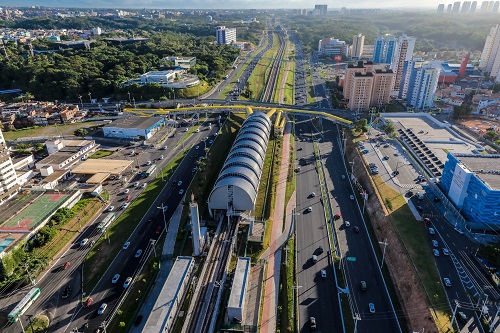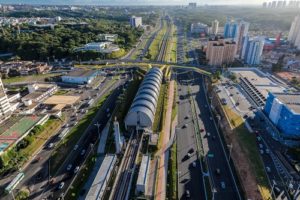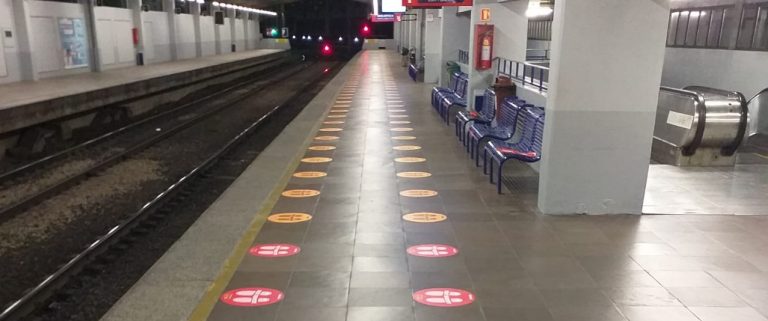The expansion of the network contributed to the volume stability of passengers transported, which totaled 2.93 billion people last year.
The passenger rail transport network in Brazil grew 30.2km in 2017, surpassing the projection of 29km by metro rail operators. This growth was possible with the inauguration of two new lines and the extension of three others, expanding to 24 stations serving the population. The figures are part of the Balance of the Metro Rail Sector 2017/2018, released by the National Association of Passenger Rail Operators (ANPTrilhos), on April 16, in Brasilia, capital of Brazil.
Around 50% of this growth occurred with the inauguration of Line 2 of Metrô de Salvador, in the State of Bahia, with an increase of 14.4km in only one year. VLT Carioca, the Light Rail line in the city of Rio de Janeiro, added another 5.8km to the network. The Light Rail of Baixada Santista, on the coast of the State of São Paulo, another 4.7km. Metrô de São Paulo 3km more, with the extension of Line 5-Lilac. And the Light Rail of CBTU Maceió, in the State of Maceió, in the Brazilian Northeast, added another 2.3km of rails to the urban network.
The increase in the capillarity of the systems, with the expansion of the network and the new stations, allowed the stability in the volume of passengers transported in 2017, totaling 2.93 billion passengers. If the network did not count on this increase, the country would have registered a decrease of 1.2% in passenger demand. The cooling of the economy and the employment fall are factors that directly affect the amount of passengers in the metro rail systems.
The transportation was also evaluated. The Brazilian train fleet had a record renewal in 2017, with the start-up of 719 new passenger cars, an increase of 15.5% over the previous year. With modern layout, air conditioning, multimedia system and accessibility, the new fleet will provide trips that are more comfortable for the citizens.
“Rail transport is a public and social service, with an important role in the movement of people in the cities where they are built, whether to go to work, study or for leisure. The steadiness of the expansion of the network and improvement of the existing network are both essential for a satisfactory service to the population. It is important and necessary that the new leaders who are announced include transport among their management priorities, providing more quality of life for citizens, moving more efficiently in cities, as well as contributing to the environmental quality in cities”, emphasizes Joubert Flores, President of the ANTERGIRES.
The thorough Balance of the Metro Rail Sector 2017/2018 is available, in Portuguese, through the link: www.anptrilhos.org.br/o-setor/balancos





